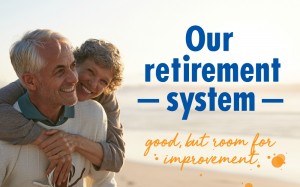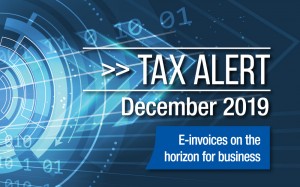
SUMMER 2019
December is here which marks the official start to summer. Unfortunately, the bush fire season is already underway. We would like to take this opportunity to express our heartfelt thanks to the firefighters, emergency services personnel and community members who have been working tirelessly to save lives and property.
After keeping interest rates on hold at 0.75 per cent in November, Reserve Bank Governor Philip Lowe said in a speech he would only consider unconventional measures to stimulate the economy if rates fell to 0.25 per cent. He ruled out negative interest rates but said he might consider buying government bonds.
Economic activity remains patchy. The Reserve Bank forecasts Australia’s economy will stay flatter for longer with growth of 2.25 per cent this year rising to 2.75 per cent by the end of 2020. Business and consumer confidence remain weak, which was reflected in a 0.2 per cent decline in retail sales in the year to September, the biggest fall in 28 years. New vehicle sales followed the trend, down 9.1 per cent in the year to October, the biggest fall in a decade. Residential building was also down, by 10.6 per cent in the year to September, the biggest fall in 18 years. Unemployment rose slightly from 5.2 per cent to 5.3 per cent in October as the number of people in work fell for the first time in 17 months.
On a brighter note, Australia trade surplus rose for the 21st successive month in September, as our annual trade surplus with China hit a new record of $67.3 billion. Our exports have been supported by the weaker Aussie dollar which eased in November from US69c to US67.7c.
Our retirement system: great, but room for improvement
You could be forgiven for thinking Australia’s superannuation system is a mess. Depending who you talk to, fees are too high, super funds lack transparency and Governments of all political persuasions should stop tinkering.
Yet according to the latest global assessment, Australia’s overall retirement system is not just super, it’s top class.
According to the 11th annual 2019 Melbourne Mercer Global Pension Index, Australia’s retirement system ranks third in the world from a field of 37 countries representing 63 per cent of the world’s population. Only the Netherlands and Denmark rate higher.i
What we’re getting right
While super is an important part of our retirement system, it’s just one of three pillars. The other two pillars being the Age Pension and private savings outside super.
Writing recently in The Australian, Mercer senior partner, David Knox said one of the reasons Australia rates so highly is our relatively generous Age Pension. “Expressed as a percentage of the average wage, it is higher than that of France, Germany, the Netherlands, the UK and the US.”ii
As for super, we have a comparatively high level of coverage thanks to compulsory Superannuation Guarantee payments by employers which reduces reliance on the Age Pension. In fact, Knox says Australia is likely to have the lowest Government expenditure on pensions of any OECD country within the next 20 years.
Superannuation assets have skyrocketed over the last 20 years from 40 per cent of our gross domestic product (GDP) to 140 per cent. “A strong result as funds are being set aside for the future retirement benefits of Aussies,” says Knox. Even so, on this count we lag Canada, Denmark, the Netherlands and the US.
Room for improvement
For all we are getting right, the global report cites five areas where Australia could improve:
- Reducing the Age Pension asset test to increase payments for average income earners
- Raising the level of household saving and reducing household debt
- Require retirees to take part of their super benefit as an income stream
- Increase the participation rate of older workers as life expectancies rise
- Increase Age Pension age as life expectancies rise.
Retiree advocates have been asking for a reduction in the assets test taper rate since it was doubled almost three years ago.
Since 1 January 2017, the amount of Age Pension a person receives reduces by $3 a fortnight for every $1,000 in assets they own above a certain threshold (singles and couples combined).iii
Other suggested improvements, such as increasing the age at which retirees can access the Age Pension, present challenges as they would be deeply unpopular.
The Retirement Income Review
One roadblock standing in the way of ongoing improvements to our retirement system is reform fatigue.
In recent years we have had the Productivity Commission review of superannuation, the banking Royal Commission which included scrutiny of super funds, and currently the Retirement Income Review.
The Retirement Income Review will focus on the current state of the system and how it will perform as we live longer. It will also consider incentives for people to self-fund their retirement, the role of the three pillars, the sustainability of the system and the level of support given to different groups in society.
The fourth pillar
One issue that the Government has ruled out of the Review is the inclusion of the family home in the Age Pension assets test.
Australia’s retirement income system is built around the assumption that most people enter retirement with a home fully paid for, making it a de facto fourth pillar of our retirement system.
With house prices on the rise again in Sydney and Melbourne and falling levels of home ownership, there are growing calls for more assistance for retirees in the private rental market.
The big picture
Despite the challenge of ensuring a comfortable and dignified retirement for all Australians, it’s worth pausing to reflect on the big picture. The Global Pension Index is a reminder of how far we have come even as we hammer out ways to make our retirement system even better.
If you would like to discuss your retirement income plan, give us a call.
i https://info.mercer.com/rs/521-DEV-513/images/MMGPI%202019%20Full%20Report.pdf
iii https://guides.dss.gov.au/guide-social-security-law/4/2/3
Tax Alert December 2019
If the introduction of Single Touch Payroll (STP) wasn’t a big enough challenge, small businesses can now look forward to the arrival of e invoicing and changes to the Superannuation Guarantee (SG) rules.
Here’s a roundup of some of the latest tax developments.
E-invoicing to be rolled out
Small businesses can look forward to increasing use of e-invoicing following the ATO’s appointment as the local Peppol Authority. Currently being used in 34 countries, the Peppol framework provides a standardised e invoice for both domestic and international trade.
With e-invoicing, invoices are directly exchanged between the supplier’s and the buyer’s accounting systems – even if they use different software.
According to the ATO, by adopting e-invoicing businesses of all sizes can expect to see improved cashflow and quicker payments, easier processing and cost savings, fewer errors and reduced risk of compromised invoices.
The ATO will now work with digital service providers to deliver a range of e invoicing products for local businesses.
Inactive ABNs will be cancelled
Inactive Australian Business Numbers (ABNs) are an increasing area of interest for the ATO. If the tax man believes your business is no longer carrying on an enterprise, you face the risk it could decide to cancel your ABN.
To determine if an ABN is still being used, the ATO is checking the ABN holder’s tax return, whether their compliance and lodgement documents are up-to-date and a range of third party information.
If your ABN is mistakenly cancelled, you can reapply for the same ABN if your business structure remains the same. But if the structure is different – such as a sole trader now operating as a company – you will receive a different ABN.
Rule change for salary sacrifice and SG
Legislation to prevent employers from using employee salary sacrificed amounts to reduce their minimum Superannuation Guarantee (SG) payments has passed Parliament and will apply from 1 July 2020.
The new rules mean an employer can no longer count the amount salary sacrificed by an employee as part of the amount the employer is required to pay in SG contributions.
Also, the base amount on which SG contributions are calculated can no longer be reduced by any salary sacrificed amounts.
Limiting deductions for vacant land
Tax deductions for losses or outgoings (such as interest costs) incurred when holding vacant land not genuinely being used to earn assessable income have been reduced under new legislation.
The changes limit the claimable deductions for holding vacant land on or after 1 July 2019 – even if the land was held prior to that date.
Tax deductions are not affected if the land is held by a corporate tax entity, used for carrying on a business, used for primary product and leased, or where exceptional circumstances have affected a permanent structure on the land.
ATO tip-offs on the rise
Small businesses in the café and restaurant industry are more likely to be subject to a tip-off and subsequent investigation by a specialist team, according to the ATO’s Tax Integrity Centre (TIC).
There are also high volumes of tip-offs about black economy behaviour in the hairdressing and beauty, building and construction, and cleaning industries.
The TIC is receiving 230 tip-offs a day about black economy activities by small businesses such as undeclared income, paying workers cash in hand and not reporting sales.
Tax man focussing on SG compliance
With the tax man currently checking SG contribution payments for around 400,000 employers for the 2018-19 financial year, small businesses will need to stay on top of their obligations in this area.
The ATO is now “heavily focused on reducing the incidence of non payment of SG” courtesy of new Single Touch Payroll information, according to deputy commissioner, James O’Halloran.
With an “unprecedented level of ‘visibility’ of super information at the account and transaction level”, the tax man plans to increase checks of SG payments and follow up employers not paying on time.
Unwrapping the joys and pitfalls of giving
Christmas is a time of giving, when thoughts turn to family and to helping those less fortunate. To gift in a meaningful way that maximises the benefits, it’s important to consider tax.
While Australia doesn’t have a gift tax, there are tax considerations nonetheless for both the giver and the recipient.
Buying a toy for your grandchild is one thing but many parents wish to help their adult children or grandchildren with more substantial gifts such as a home deposit or a car. If you receive a Centrelink age pension now or are within five years of retiring, that “gift” will be counted as an asset and could affect your pension.
Helping family
Gifting with the potential to impact your Age Pension entitlements comes in many guises. It might be donating 10 per cent of your salary to your church, buying a car for your daughter or selling her a rental property you own for less than market value.
If you gift more than $10,000 a year or a total of $30,000 over a five-year period, then the excess will be counted as an asset by Centrelink for five years, when it assesses your eligibility for an aged pension.
Your gift won’t just count in the assets test but deeming may also be applied under the income test. Deeming rules are used to work out how much income you earn from your financial assets, irrespective of their actual earnings.i
How do the gifting rules work?
Say you lend your daughter $50,000 to buy a home two years before you retire. Centrelink would view the first $10,000 as an allowable gift and it would make no difference to your situation. However, it would treat the remaining $40,000 as a deprived asset subject to the gifting rules.
What’s worse, if your daughter were to repay $40,000 in two years, then not only would the original $40,000 be counted in the assets test and deemed under the income test but now the $40,000 she repays would be added to this sum.
Can you afford to give?
Clearly, it’s wonderful to give with a warm heart and help relatives when they need it and you can see the joy it brings. Even so, you need to be very mindful of the repercussions for your own wellbeing.
It may be that you don’t qualify for a pension on retirement, but what if you give away a sizeable sum and then need to fall back on the pension sooner than anticipated? If the help were needed within five years of your gift giving, then the amount would be subject to the gifting rules.
Tax implications for children
It’s not just the giver who can run into problems. You need to be mindful of any repercussions for the recipient of your generosity. It’s natural to want to give money to your grandchildren, but there may be tax implications if they’re under 16.
Depending on your circumstances, we may be able to help you find a more tax friendly investment to suit the needs of both you and your young family members.
Giving to charity
Giving to charity is often top of mind at Christmas too. Any donation over $2 is tax deductible but this has no bearing if you are retired and not paying tax. Of course, the reason for giving should never be predicated on tax considerations, although it may be handy.
A tax deduction only applies if the charity is a deductible gift recipient (DGR) endorsed by the ATO or listed by name in the tax law, so you need to check that the charity has DGR endorsement.
Giving to those in need or to those you love can be a rewarding experience no matter what time of year, but it’s important to understand the implications for both giver and receiver.
If you would like to know more about how gift giving will impact on your financial wellbeing and that of your family, then give us a call.
i https://www.humanservices.gov.au/individuals/topics/deeming/29656



